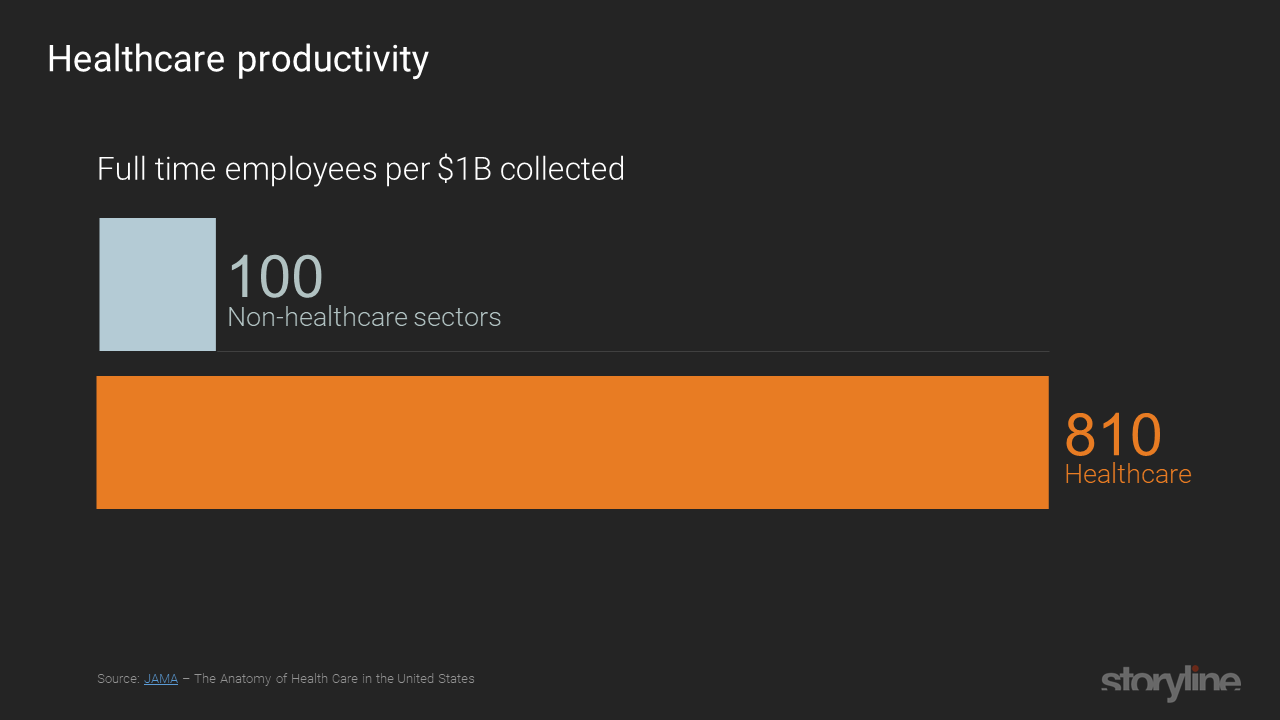Healthcare is dramatically less efficient than any other industry or market sector in the US, but is there any way around that?
Is US healthcare uniquely inefficient?
…the efficiency cost of the U.S. health system has also been estimated at 20–30 percent of healthcare spending, or 3–5 percent of GDP (Fisher et al., 2003a, b; Skinner, Fisher, and Wennberg, 2005), and according to some studies, avoidable deaths and medical errors are much more common in the United States than in European countries (Schoen et al., 2007; Nolte and McKee, 2008).
The National Bureau of Economic research points out that The authors outline a number of possible reasons for the inefficiency of US healthcare in finding that the U.S. has higher health care spending but similar health outcomes to other countries. Their findings are consistent with two possible explanations. The first is that the health care production function is quite flat in this range, meaning that consuming additional health care services yields little or no health benefits. The second is that the U.S. is on a lower health care production function (is less productively efficient) than other countries.
Distinguishing between these explanations has important policy implications - the first implies that reducing U.S. health care spending would not adversely affect health outcomes, while the second implies that it would do so.
There’s a lot of focus on trying to remove inefficiencies from the current ecosystem, but I think that they entirely miss the point.
The current delivery of care is entirely inadequate to the need in almost every area because care delivery is almost entirely based on human labor and expertise, which is neither scalable or sustainable.
20% of the adult population of the us has a treatable mental health condition at any point in time.
Many of these are temporary – depression from a divorce or job-loss – but many are not, and 4% of the US population is currently suffering from a debilitating mental health condition.
Most of this population goes undiagnosed and without care because there is no way to scale the deliver of care to meet the need – so we resign ourselves to “we can’t help everyone”.
But we believe that that’s the wrong way to frame the problem.
There is no way to deliver comprehensive care that meets any societies needs simply by trying to train more clinicians or build better human-centric processes. The need is simply overwhelming.
We believe that only a combination of human AND technology solutions allow us to build both diagnostic and treatment capabilities that do scale to meet the need, and that we’re just at the edge of understanding what they can do.
The market is not yet ready to embrace such a transformative change, and won’t be for a while. It will take time to gain acceptance by both providers and consumers of healthcare, but if we understand anything about technology it is that progress and acceptance is dramatically overestimated in the short term, and just as dramatically underestimated in the long term.
We understand that discovery only happens at that edge and we’re focused on building some of the tools and capabilities that enable the delivery of care to meet the need.
If you have an interesting clinical or behavioral problem that you’re trying to solve, we’d like to help.
